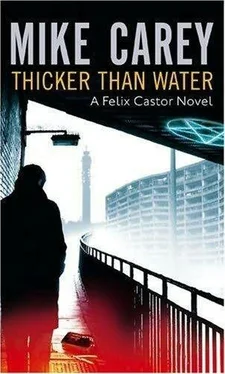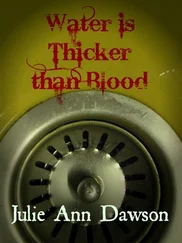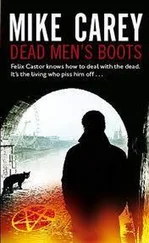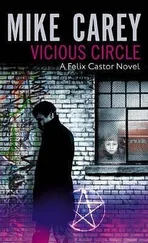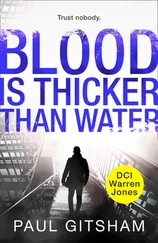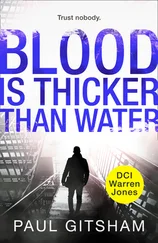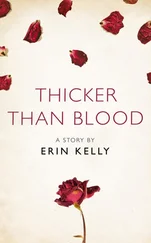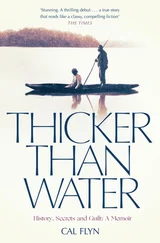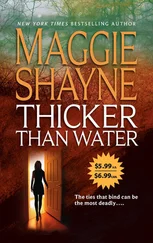I lurched to my feet, groped for the bolt on the door and found it, stumbled out into the corridor as though I was a ghost myself, breaking free from my own tomb. My heart was hammering arrhythmically and my body was drenched in sweat. I leaned against the wall as the sweat cooled and the hammering slowed.
I went back to the ward, my feet shaky enough to require two further stops. Once there, I fell with relief back into my own bed.
Death had brought no relief to Kenny, that was clear. He didn’t seem to be enjoying himself much at all. And for all I’d learned from raising him, I might as well have stayed in bed and messed around with a ouija board.
The dark mood engendered by the summoning refused to lift from my mind. Giving in to it, I picked up Nicky’s sheaf of notes again and made to pick up where I’d left off the night before. I wasn’t expecting the endless catalogue of perforated bodies to yield anything new in the way of insight, but I knew with a gloomy certainty that my mind wouldn’t settle to anything else.
Then I belatedly remembered Gary Coldwood’s little gift. Mark Seddon’s autopsy report. It was still lying where I’d left it on the bedside cabinet. I picked it up and unfolded it.
I scanned the name and address details with a cursory eye and went straight to the physical indexes. They were as grimly, relentlessly thorough as you’d expect, compiling to a full but oppressively abstract description of the kind of damage cold poured concrete will do to a body that hits it at a velocity of forty-some metres per second. There were even photographs, but fortunately they were so dark and lacking in contrast that you couldn’t really see what they were of. Except for one of them, and I stared at that one with slowing gathering shock and unease.
A terse note underneath the photo identified it as a tattoo on Mark Seddon’s left shoulder. It was a stylised teardrop shape surrounded by radiating lines.
I sat propped up on my pillows staring at that inscrutable, unrevealing image for the best part of a minute. Then, since I couldn’t look away from it, I tried to hide it by putting the cover sheet back over it. Doing that gave my system its last and maybe biggest shock of the evening: or maybe the nasty stutter of my pulse was an after-effect of the summoning, with its combination of physical and psychological exertion.
The cover sheet was where all the name and address details were set down. Mark Seddon, place of residence 137 Weston Block, Salisbury Estate, Walworth. Father’s name left blank. Mother’s name given in full. Not a Tina, or a Tania.
Anita.
Married name, Anita Mary Corkendale.
Birth name, Anita Mary Yeats.
My stomach did something complicated and self-destructive, and suddenly I was fighting to keep my hospital dinner — which was already inclined to defy gravity — down in the hold.
Anita.
That downtrodden chattel, who went from Brent to Walworth as part of the property and appurtenances of a boyfriend who beat her up every night as regularly as another guy might put the cat out.
Anita.
Why? What fucking sense did that make? She’d seen through Kenny when we were kids. She’d cut a slice out of him to save me, but then did a quick-fade before my balls dropped and I could ask her out on a date.
How could she end up with Kenny, even briefly? How could she give his name to her kid?
My phone rang, making me start so violently that my chest muscles spasmed and my fists clenched from the sudden pain as my damaged lung reported in still not fit for duty.
I hauled the greatcoat off the back of the chair and rifled the pockets with trembling hands. They didn’t seem to be in the right places, and the phone had stopped ringing by the time I found it. I checked last-number redial, but the number wasn’t one I recognised and it refused to take a call. So I waited.
After maybe a minute it rang again. I flicked it open.
‘Hello?’
‘Felix.’ It was Matt’s voice, and hearing it I remembered how our last meeting had ended: probably that was why his tone sounded so guarded. But maybe he’d had second thoughts about letting me in on what he and his dubious friends were up to at the Salisbury.
‘Hi, Matt,’ I said. ‘How’s your soul?’
There was a long silence. Maybe it wasn’t the most tactful way of starting the conversation, but then I was feeling too bruised and battered to be interested in my brother’s tender feelings. ‘Something you want to share?’ I prompted him. ‘Or are you calling me out of the blue because you decided that “brother’s keeper” line was too cheap a shot to let stand?’
Another silence.
‘This is my statutory phone call, Fix,’ Matt said at last, his voice unnaturally calm. ‘I’m at Cromwell Road police station. I’m under arrest for murder.’
The interview suite at Cromwell Road reminded me of the classrooms at the Alsop Comprehensive School for Boys, where I spent the years between changing up from short trousers and leaving home. The resemblance wasn’t immediately obvious, because the classrooms at Alsop mostly had windows whereas the Cromwell Road interview rooms are below ground and therefore don’t. And you never had to be swiped in through the doors at Alsop by a burly constable wearing a hundredweight of ironmongery at his belt. Moreover, the teachers at Alsop were for the most part saintly men and women who got little reward for plucking the flowers of higher learning and strewing them at our ungrateful feet: you’d be hard put to it to find a saint in a London cop shop, unless he’d just been done for resisting arrest.
So I suppose it was just the institutional thing: not quite ‘Abandon hope, all ye who enter here’, but the feeling that you’re handing over some portion of your life into someone else’s hands, to be tagged and bagged and given back to you later, maybe, if they can find it again and if it’s still identifiable as yours. Fatalism descends on you like a stifling woolly blanket as the door closes behind you.
Gary Coldwood was sitting in a tubular steel chair with a red plastic seat — some kind of Platonic archetype of cheap, nasty, totally disposable furniture. But he stood up as I came into the room.
The surroundings were sparse. Just a table and two chairs, a green plastic wastebasket and, for some reason that escaped me, a poster on the far wall advertising all the many benefits of using a condom. When having sex, I assumed, rather than, say, for piping crème de chantilly or impromptu party decorations.
‘Go and get Matthew Castor from the remand cells,’ Gary said to the cop with the keys. ‘Sign him in here for thirty minutes on my bounce code. Seven-thirteen.’
The uniform hesitated. ‘Can’t use these rooms for visits, sarge,’ he said, in a timid tone that sounded like it didn’t know what it was doing in his square-jawed, bushy-bearded mouth.
‘It’s not a visit,’ Gary said. ‘It’s an interview.’
The uniform still didn’t seem entirely happy. He shot a look at me that spoke twenty-seven volumes plus an appendix. ‘But, you know, for an interview,’ he said. ‘If there’s a civilian observer, you’ve got to fill in a–’
‘What civilian do you mean?’ Gary asked mildly.
The constable thought this through, and eventually got there. ‘Right you are, sarge,’ he said, in a nudge-nudge-wink-wink kind of voice, and he went on his way.
‘Thanks,’ I said to Coldwood.
‘You’re welcome.’
‘And thanks for the heads-up, too, you duplicitous bastard.’
Coldwood nodded. ‘Which is why we’re in here,’ he said, ‘and all on our lonesomes. Get it out of your system, Fix.’
‘You fucking knew she was going after Matt.’ I thrust a finger at his face. ‘You knew it, and you didn’t tell me.’
Читать дальше
